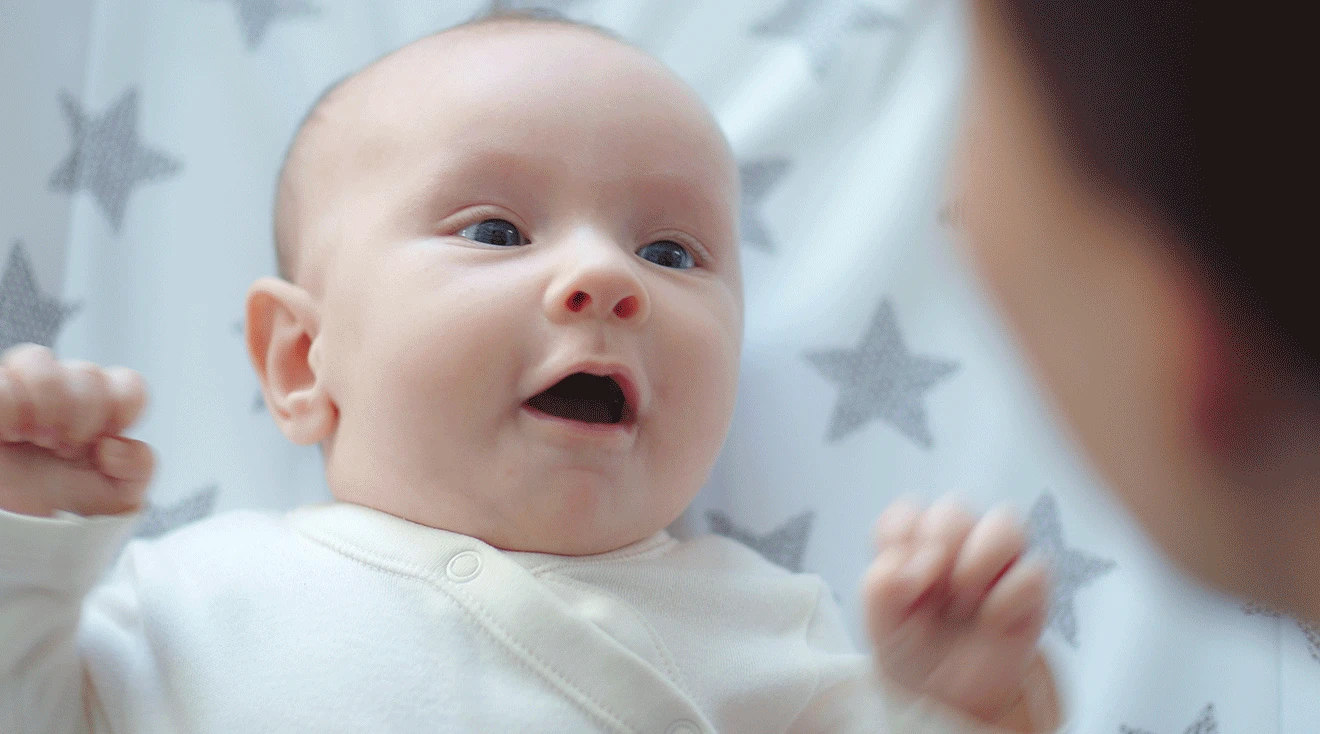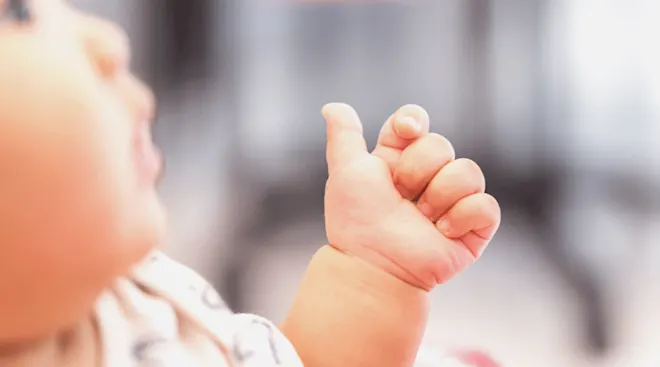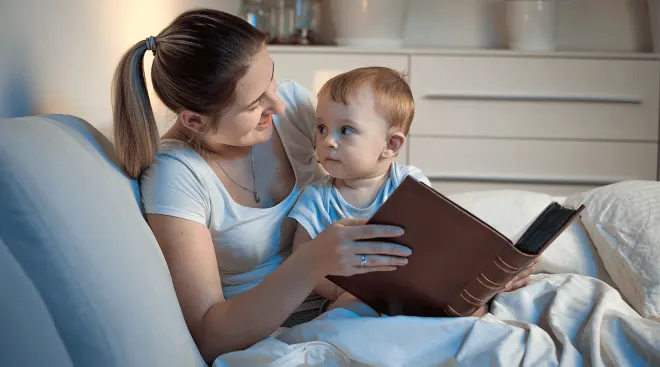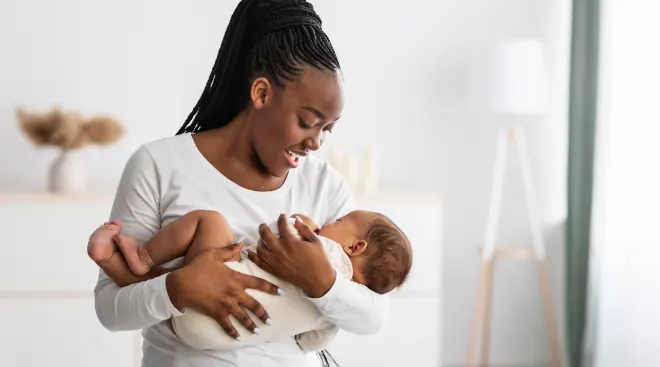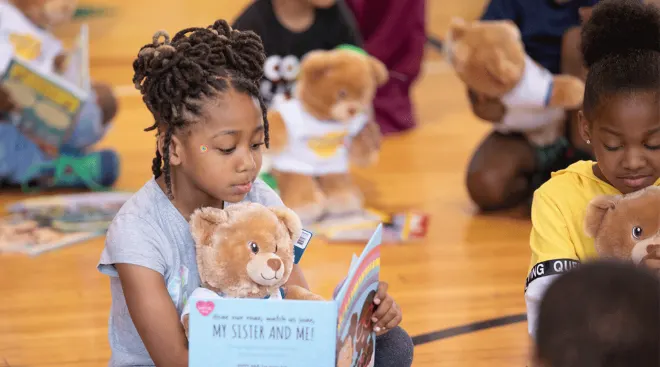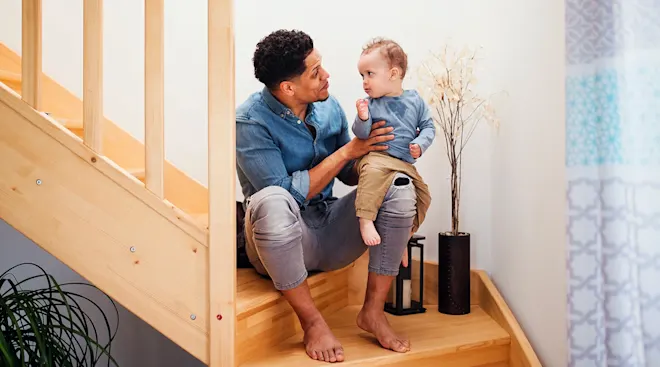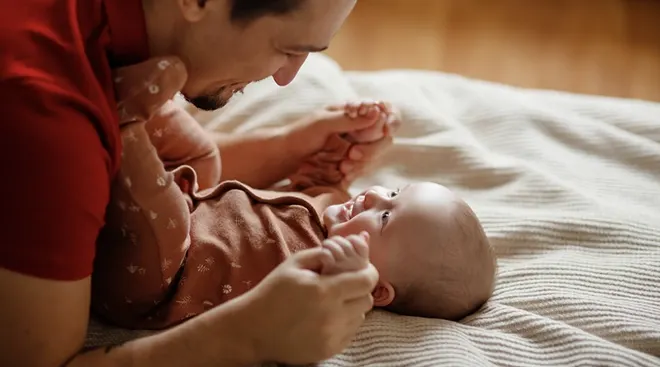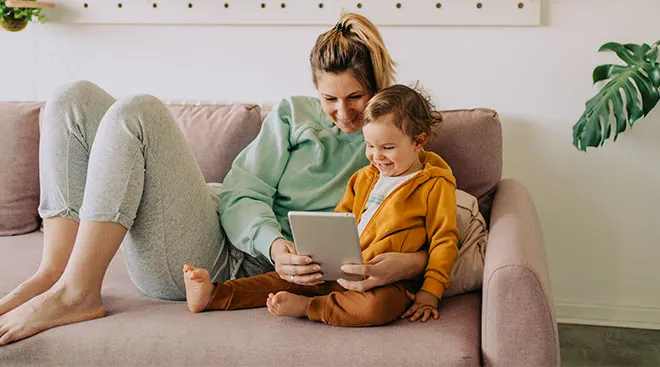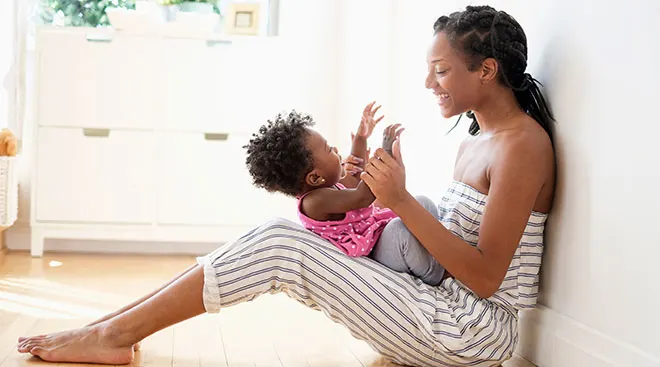When Does Baby Start Cooing?
We’ve all heard those adorable early sounds newborns make, when they’re wide-eyed and excited. It’s like they’re trying to tell us something but just can’t find the words. These adorable baby cooing noises are often met with smiles, kisses and imitations, but they also serve a pretty big role in your child’s language and speech development. So, what exactly is baby cooing and why does it happen? And when do babies start cooing? Keep reading as two pediatricians break down everything to know.
Aside from crying, cooing is “the first vocalizations that babies make,” explains Joelle McConlogue, MD, a pediatrician with Stanford Medicine Children’s Health. These vocalizations consist of soft vowel-sounds, such as “ah,” “eh” and “oh”—and may even sound like an actual “coo” from a little bird, adds Denise Scott, MD, an Oklahoma-based pediatrician.
And it’s more than just adorable: Cooing is actually the start of language development in babies. “[It’s] when they’re starting to learn how to make sounds and starting to process the muscles that’ll be needed to make sounds,” explains McConlogue. Scott agrees, adding that cooing noises are often made in the neck near the vocal cords, as opposed to crying, which comes more from baby’s chest.
“There’s a range, but generally by 2 months we do want to see that the babies are having some vocalization and cooing with those sounds,” McConlogue says. Eventually, as baby’s language develops—around 4 to 6 months—they’ll also start to add consonant sounds, such as “ba,” “ga” and “da,” McConlogue adds. This marks baby’s transition from cooing to babbling. “You start to get a link of different syllables together, and that’s really babbling—once you have a combination of those harder sounds and the vowels,” she notes. They’ll continue to babble until 9 months old or even beyond as they start to learn their first words.
Wondering if cooing is a sign that baby is happy? It could be! “Cooing is a good sign that baby is content, that baby is in a state where they’re just happy and comfortable,” McConlogue says. Scott adds that baby may coo in response to your face, voice, an object or simply to entertain themselves.
Because it’s a response to contentment, you may also find baby cooing in their sleeping or while breastfeeding. During sleep, Scott notes it may be a response to baby’s dreams or transitioning sleep cycles (though she notes grunting tends to be more common). While breastfeeding, McConlogue says it’s really no different than the sounds adults might make when they enjoy a particularly good meal: “They’re just content and they’re making sounds…like we do.”
According to McConlogue, baby cooing is considered a milestone, as it’s the start of baby’s language development. There are two primary ways cooing help with baby’s development. First is a physiological aspect: “Since cooing derives from the larynx, it can contribute to their developing the muscles they will later use to form speech,” Scott explains. It also helps baby practice using their facial muscles for speech.
Secondly, baby cooing helps with personal social interaction. “When a baby starts to coo, they’re starting to interact with their world,” McConlogue says, as many parents and caregivers will innately coo and smile back. “It’s a really good beginning of personal connection where [babies] have that social interaction and realize, ‘Oh, I’m part of something more than just me.’” This back and forth interaction is great for baby’s social development, as it teaches them listening and responding.
Aside from responding to baby cooing, there’s lots parents can do to encourage language development overall. McConlogue encourages creating a “language rich environment” full of speech and sounds—and not just from the screen or TV. She suggests talking to baby (even if they don’t talk back), narrating actions, using facial and vocal expressions, reading to baby and singing to baby. Baby will learn a lot about your emotions and personality from your words. For example, if you speak in a comforting manner, baby may smile or coo, but if you’re angry or you yell, baby may startle or cry, the American Academy of Pediatrics (AAP) notes.
McConlogue recommends letting your provider know if baby isn’t cooing or making some kind of vocalizations by the time they’re 4 months old. By this age, baby should also be smiling, responding to noises and responding to faces, Scott says.
McConlogue states that some babies will coo and make vocalizations, even if they have issues with hearing. “What will happen, though, is that you’re not going to see the progression…from cooing into the babbling,” she says. “Deaf children may initially coo, but then their language doesn’t progress.” Other babies with hearing issues may not coo at all or will coo less frequently, she points out, adding that it varies.
Some parents may worry about an eventual autism spectrum disorder (ASD) diagnosis, but McConlogue emphasizes that a language delay is only one piece of the puzzle. “There’s often some delay in vocalization…however, that’s one of many things,” she explains. For an ASD diagnosis, there will likely also be delays in other aspects of personal social communication, as well as the presence of repetitive behaviors, she explains. “A lot of times it just takes time to watch and to follow and to develop…we won’t know until the child just grows with a little bit of time,” she says.
Please note: The Bump and the materials and information it contains are not intended to, and do not constitute, medical or other health advice or diagnosis and should not be used as such. You should always consult with a qualified physician or health professional about your specific circumstances.
Joelle McConlogue, MD, is a pediatrician with Stanford Medicine Children’s Health and has over 20 years of experience She earned her degree from Columbia University College of Physicians and Surgeons and completed her residency at Children's Hospital of Philadelphia.
Denise Scott, MD, is a pediatrician with JustAnswer and a pediatric endocrinologist based in Oklahoma with over 30 years of experience. Certified in culinary medicine, Scott also runs the blog Feed Future Health and is the author of Feed Your Child's Future Health: Prevent Disease Before it Starts. She received her medical degree from the University of Texas Medical Branch and completed her residency at the University of Oklahoma Health Sciences Center with a fellowship at the National Institutes of Health.
Healthy Children (American Academy of Pediatrics), Hearing & Making Sounds: Your Baby’s Milestones, February 2021
Learn how we ensure the accuracy of our content through our editorial and medical review process.
Navigate forward to interact with the calendar and select a date. Press the question mark key to get the keyboard shortcuts for changing dates.

































